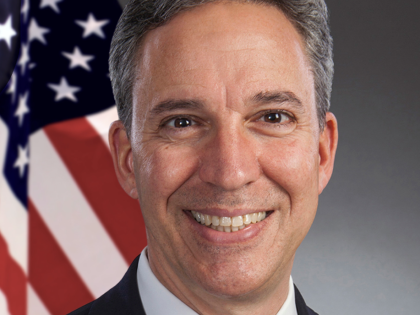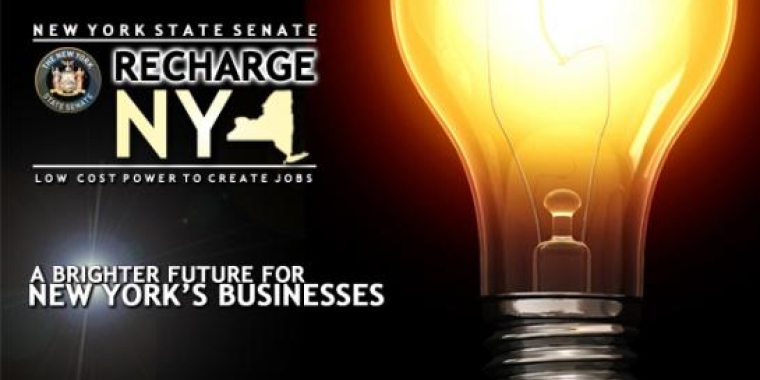
Senate Passes Bill To Create "Recharge NY" Power Program
Jack M. Martins
March 9, 2011
-
ISSUE:
- Energy

Bill Would Establish New, Permanent Low-Cost Power Program to Create & Retain Jobs
The New York State Senate passed legislation (S.3164), sponsored by Senator George Maziarz (R-C, Newfane), to create a new, permanent program called “Recharge NY,” that would provide low-cost power to help businesses create and retain jobs.
“The passage of this legislation will enable more businesses across New York to access cheap electricity to create jobs,” said Senator George D. Maziarz, Chairman of the Senate Energy and Telecommunications Committee. “The program has been renewed on an annual basis for several years, but we’ve needed a permanent solution so businesses can plot their growth. The passage of this legislation ensures that businesses across New York will have the stability needed to plan long-term.”
“It’s time to stop the year-to-year extensions of this program and make it permanent so businesses that receive this low-cost power can count on the certainty and stability of their energy costs and create new jobs,” Senate Majority Leader Dean G. Skelos said. “I commend Senator Maziarz for his longtime leadership on this issue and Governor Cuomo for submitting the bill to create this program. Now we need the Assembly to pass it so it can be enacted into law.”
The Recharge NY bill, which was submitted as a program bill by Governor Andrew Cuomo and is included in his 2011-12 Executive Budget, would double the amount of low cost power available for businesses and non-profits to 910 megawatts.
"This bill is another step towards spurring economic growth. The key to revitalizing our economy is to create jobs. This is a business-friendly measure that will have a positive effect on all of our stakeholders. I applaud Senator Maziarz and the Governor for their leadership on it," said Senator Jack M. Martins.
The new low cost power program could help revitalize the manufacturing sector of New York’s economy that has lost 288,000 jobs over the past ten years. Electric rates for businesses in New York are twice as high as rates in other states. New York's high energy costs are a factor when New York-based companies decide whether to stay open or expand, and when new companies decide where to invest.
The bill is supported by the Business Council of New York State, the New York Farm Bureau, NFIB, the Manufacturers Association of Central New York, Environmental Advocates, the Long Island Association and the Buffalo Niagara Partnership.
The original Power for Jobs program began in 1997 and has been extended on a year-to-year basis the past five years. It currently provides low cost power to about 500 businesses. The new program would provide twice the wattage and businesses participating in the program would receive seven-year commitments for their allocations of low-cost power. There would be no cost to the state for this program.
Recharge NY would combine the current 455 megawatts of power currently used for Power for Jobs with another 455 megawatts now used to cut residential electric bill across Upstate by two to four dollars per month. In return, the New York Power Authority would provide residential customers with a yearly discount totaling $100 million through 2013. The discount would be reduced to $70 million in 2014, $50 million in 2015 and $30 million in 2016 and beyond. This phase out would be offset by savings from the scheduled expiration of the electric utility surcharge passed by Senate Democrats in 2009, as well as costs paid by NYPA through a combination of hydroelectric power and other resources.
The Recharge NY bill is be the third program bill submitted by the Governor to be passed by the Senate, the others being property tax cap legislation and the military voting ballot extension bill.
In addition, the Senate has passed bills to establish a state spending cap, provide tax incentives to encourage private sector job creation, and require a supermajority to raise taxes. The Assembly has not acted on these bills.
The bill has been sent to the Assembly.
Share this Article or Press Release
Newsroom
Go to NewsroomLewis Licht
May 20, 2016

